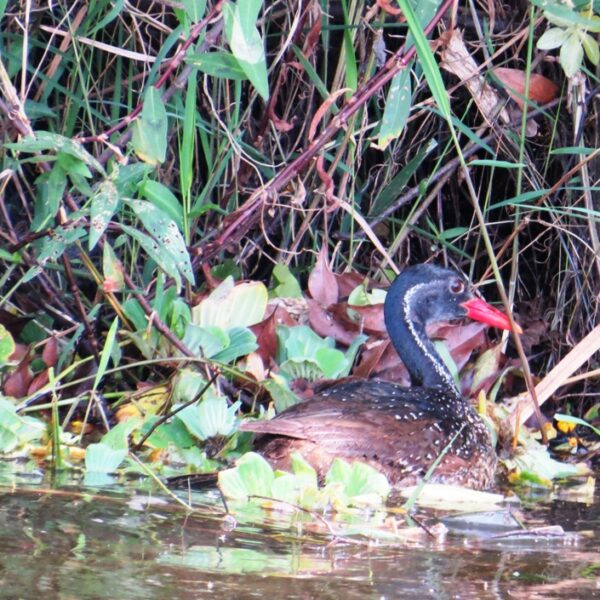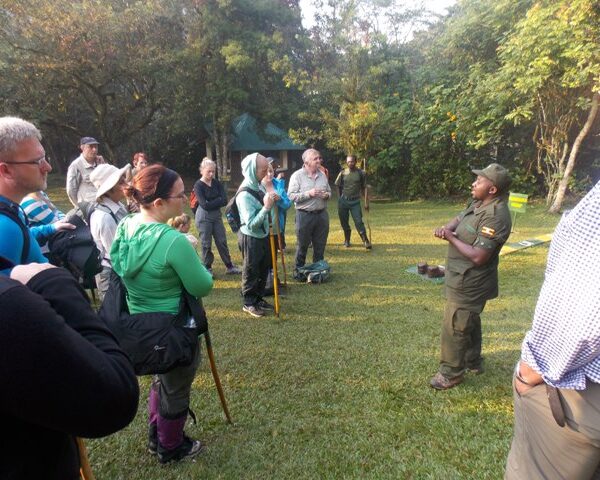Uganda Birding Safaris
Uganda is one of Africa’s premier birdwatching destinations. From the savannas of Lake Mburo and Queen Elizabeth National Parks to the lush jungles of Semliki and Bwindi Impenetrable Forest, Uganda is a birder’s paradise. With over 1,078 bird species recorded, including 24 Albertine Rift endemics, Uganda offers unrivaled opportunities for both dedicated birders and nature enthusiasts.
Uganda’s Endemic Birdlife
Uganda’s position along the Albertine Rift makes it one of the richest areas of endemism in Africa. Among the 24 Albertine Rift endemic species, highlights include:
Green Broadbill
Grauer’s Swamp Warbler
Neumann’s Warbler
Shelley’s Crimsonwing
Dusky Crimsonwing
Yellow-eyed Black Flycatcher
Strange Weaver
Rwenzori Double-collared, Regal, Purple-breasted & Blue-throated Sunbirds
Rwenzori Turaco
Handsome Francolin
Stripe-breasted Tit
These and many others are best sought in Bwindi Impenetrable National Park, Semliki, Kibale, Budongo Forest, Mgahinga, and the Rwenzori Mountains.
Iconic Specialties
Uganda is also one of the best places on earth to see the Shoebill, a prehistoric-looking bird often spotted in the papyrus swamps of Mabamba, Lake Victoria, and other wetlands. Other papyrus specialties include:
Papyrus Yellow Warbler
White-winged Warbler
Carruthers’ Cisticola
Papyrus Gonolek
Swamp Flycatcher
Orange Weaver
Uganda’s Landscapes and Lakes
Uganda is a landlocked country bordered by Kenya, Tanzania, Rwanda, South Sudan, and the Democratic Republic of Congo. It lies at the heart of the Great Lakes region, with nearly a quarter of its surface covered by wetlands.
Lake Victoria: The northwestern third of the world’s second-largest freshwater lake lies in Uganda.
Lakes Albert and Edward: Stretching along the Albertine Rift floor, rich in waterbirds and wildlife.
Lake Bunyonyi: A stunning mountain-ringed lake dotted with islands, now a fast-rising birding and ecotourism destination.
Crater Lakes of Fort Portal & Kibale: Scenic birdwatching hotspots, often combined with chimpanzee tracking and community projects like Bigodi Swamp.
Ssese Islands (Lake Victoria): A lush archipelago of 84 islands, some revered as sacred, offering an ideal retreat after safari with both birding and fishing opportunities.
Uganda’s Protected Areas
Uganda boasts 60 protected areas, including 10 national parks. Two are UNESCO World Heritage Sites:
Bwindi Impenetrable National Park – home to Mountain Gorillas and a hotspot for Albertine Rift endemics.
Rwenzori Mountains National Park – famous for its glaciers, highland scenery, and unique birdlife.
The Albertine Rift – Heart of Endemism
Stretching 1,000 kilometers across Uganda, Rwanda, Burundi, Tanzania, and the Democratic Republic of Congo, the Albertine Rift is a global biodiversity hotspot. It hosts:
Over 50% of Africa’s bird species
39% of mammals
19% of amphibians
14% of reptiles and plants
This makes Uganda not only a leading birding safari destination, but also one of the most rewarding wildlife and photography destinations in Africa.


